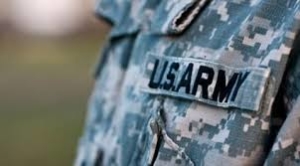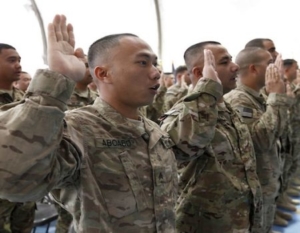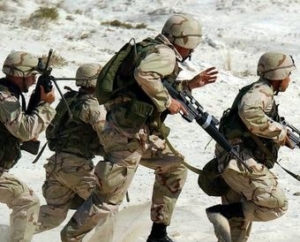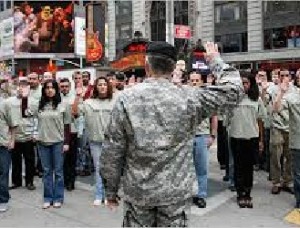Immigrants Kicked Out of the U.S. Military

Immigrants Kicked Out of the U.S. Military
There is a big difference between the Delayed Entry Program (DEP), which allows foreign-born individuals going into active duty in the United States Armed Forces to enlist first in the DEP before they ship out to Basic Training, and the Military Accessions Vital to the National Interest program (MAVNI), which was designed to help the military attract health care professionals or personnel with specific language skills.
The Marine Corps says “yea” to their foreign-born DEP recruits, while the Army apparently says “nay” to their foreign-born MAVNI recruits, quietly booting dozens of soldiers who’d joined the military with the promise that they’d qualify for U.S. citizenship.
In 2016, Panshu Zhao of China enlisted in the U.S. Army after attending graduate school at Texas A&M University. Now, he is one of the dozens of immigrant recruits and reservists struggling with abrupt, often unexplained military discharges and canceled contracts.
Zhao, 31, said his “ship out” date to basic training was delayed for two years as he underwent background checks, counterintelligence interviews and rigorous reviews added as requirements for immigrant enlistees. In the meantime, he continued to pursue his PhD in geography, staying in shape in preparation for boot camp. He also trained, in uniform, with his unit. He had military identification and health care.
In April, he got word from his unit commander that he was being discharged. He was only told that his discharge was “uncharacterized,” Zhao said.
“I’m not a national threat. On the contrast, I’m a national merit because people like me with higher education and critical skills; we want to serve this great U.S. Army. I’m a good scientist no matter what.”
Even though all of the eligible recruits are required to have legal status before enlisting, in order to become citizens, the service members need an honorable service designation, which can come after even just a few days at boot camp. But the recently discharged service members can’t be naturalized because their basic training was delayed.
It is not clear what affect the service members’ discharges could have on their status as legal immigrants.
According to the Department of Defense, some 110,000 members of the Armed Forces have gained citizenship by serving in the U.S. military since the September 11th attacks.























